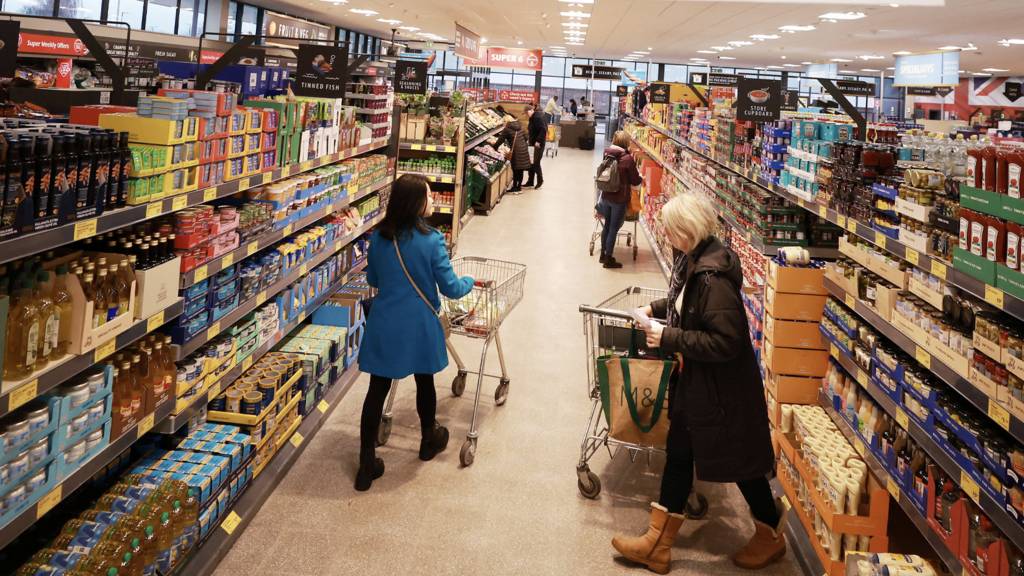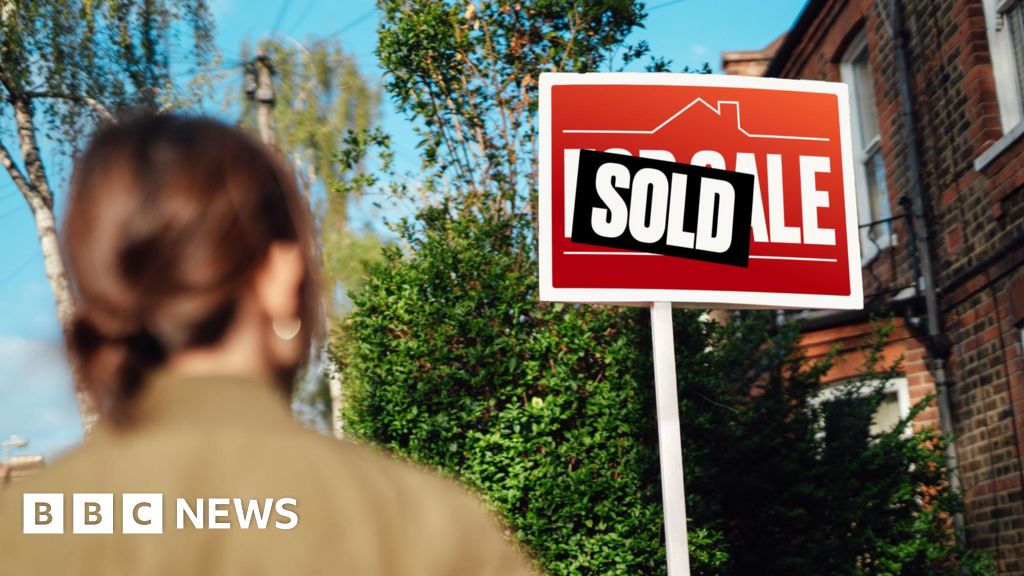ARTICLE AD BOX

1,599
viewing this page
Got a TV Licence?
You need one to watch live TV on any channel or device, and BBC programmes on iPlayer. It’s the law.
Live Reporting
Edited by Nathan Williams
All times stated are UK
What do we know about the last set of inflation figures?

Copyright: Getty Images
Last month, UK inflation held at 4% - unchanged from the previous month.
The main driver behind the figure was an upward contribution from housing and higher energy charges - while the biggest downward factor came from food, non-alcoholic drink, furniture and household goods.
Food prices also saw their first monthly drop for more than two years.
What was announced in the Spring Budget?

Copyright: BBC
Today's inflation figures come just two weeks after Chancellor Jeremy Hunt unveiled his Spring Budget.The Budget could be the last big announcement of the government’s financial plans before the next general election. But what did the chancellor pledge?
- National Insurance was cut for workers by another 2p - having already fallen by 2p in last year’s Autumn Statement
- The earnings threshold for child benefit was raised from £50,000 to £60,000
- And the VAT threshold for small businesses increased from £85,000 to £90,000
- The Household Support Fund for families in England was extended for six months, falling short of charities’ hopes of a two-year extension
- Alcohol duty was frozen and the 5p cut in fuel duty was extended
- And there are new taxes on vapes, and higher taxes for business class flights
- The windfall tax on the profits of oil and gas companies was extended until 2029, while capital gains tax was reduced for the higher rate of property from 28% to 24%
- And the non-dom tax break, claimed by wealthy foreign residents in the UK, was abolished - but new arrivals will still not pay tax on foreign income and gains for their first four years of UK residency
You can read more about Hunt's major announcements here.
Food and energy prices bringing inflation down

Dharshini David
Chief economics correspondent

Copyright: Getty Images
Today should see the rate at which prices are rising slowing further in February, with inflation easing to about 3.5%.
The very same factors that triggered the cost of living crisis, global food and energy costs have also played a huge part in bringing it down. A fall in the domestic energy price cap should bring it down to below the Bank of England's 2% target later in spring.
A sharp rise in the price of meals out last February should also help make these figures look better (remember, inflation measures price movements compared a to a year ago).
But some bills continue to climb substantially - particularly those for services, the likes of insurance premiums and mobile phone tariffs. It’s the persistence of that services inflation, which in January was at 6.5%, which concerns the Bank of England, which is charged with taming price pressures.
And that’s why economists still think it’ll be a few months until the Bank is confident that inflation is not only back in line with its target but is set to remain so.
What is inflation?
Inflation measures how quickly prices are rising (or very occasionally falling) for goods and services.
And a series of shocks to the economy over recent years has caused high inflation, the Bank of England says.
First, the Covid pandemic pushed prices up as more people bought goods - but there were problems getting enough of the goods, particularly with importing them from abroad.
Second, the war in Ukraine led to large increases in the price of gas and food.
Then, a big fall in the number of people available to work meant employers began offering higher wages to job applicants, with many businesses increasing their prices to cover these costs.
It is important to understand that things will continue to cost more than they did before, even if the rate of inflation falls.
Inflation expected to fall to 3.5%

Nathan Williams
Live reporter
Good morning and welcome to our live coverage as we get ready to find out the latest inflation figures in the UK.
In last month’s figures, the rate of price rises remained unchanged from the previous month - at 4% for both December and January.
Economists are expecting a drop to around 3.5%, which would bring the rate of price rises closer to the Bank of England’s 2% target.
We’ll know for sure at 07:00 GMT. Until then, stay with us for live updates and analysis.

 9 months ago
50
9 months ago
50











 English (US) ·
English (US) ·